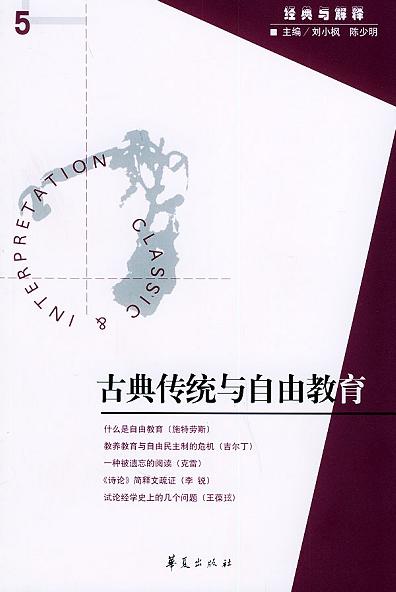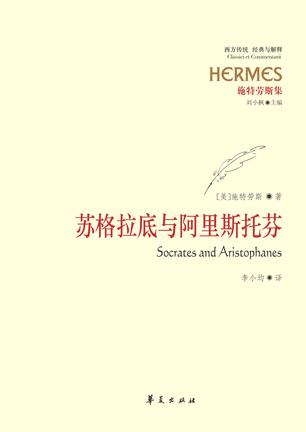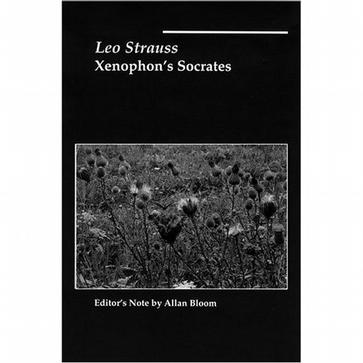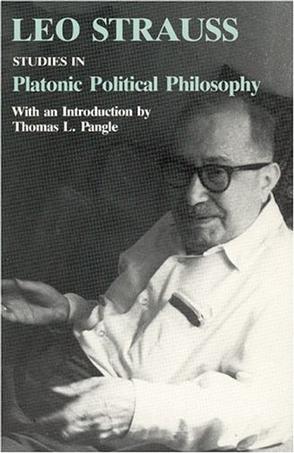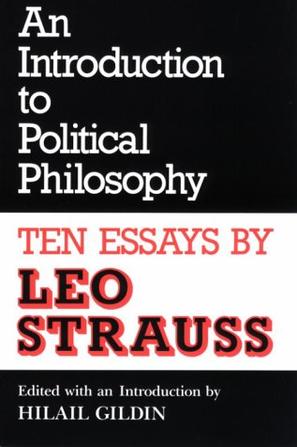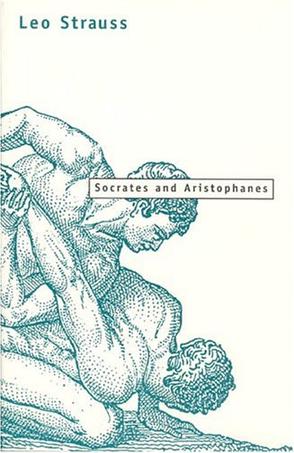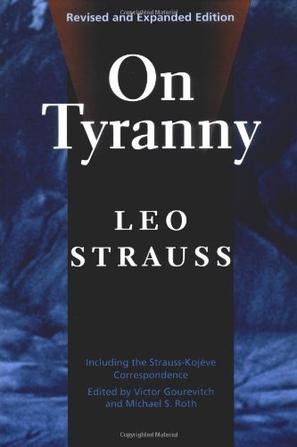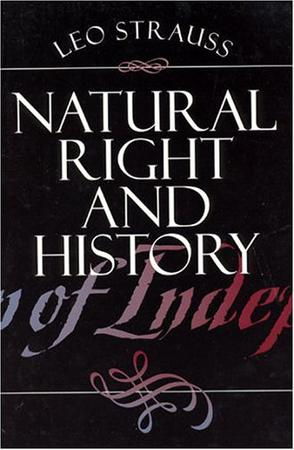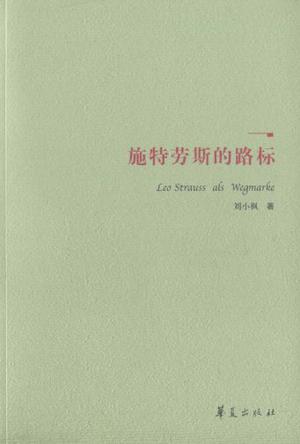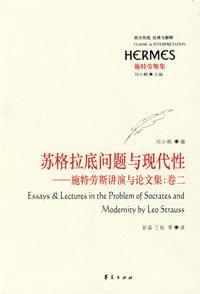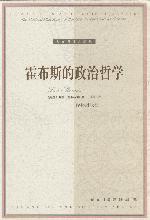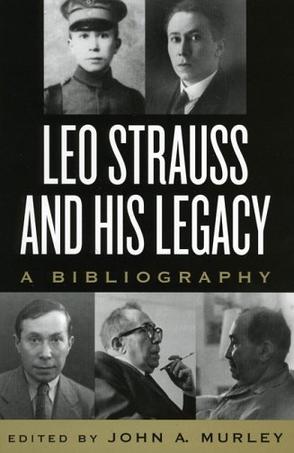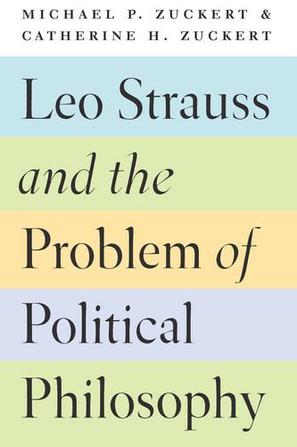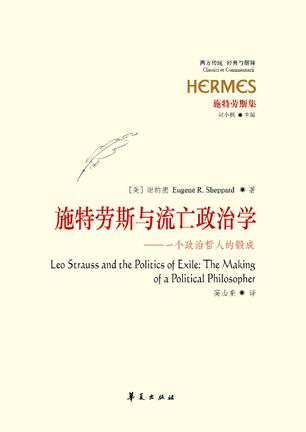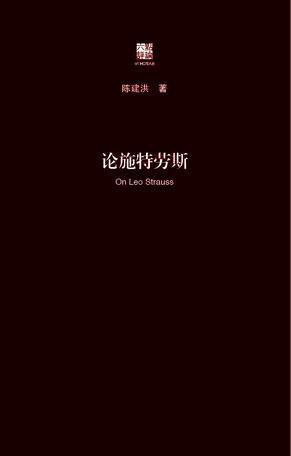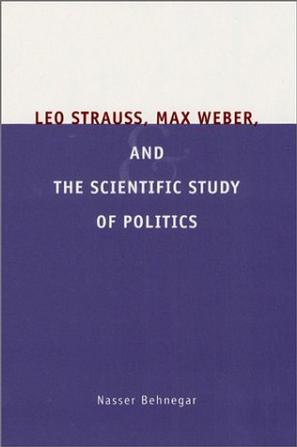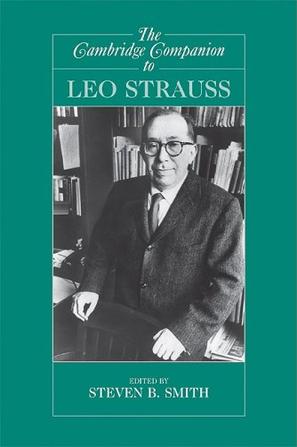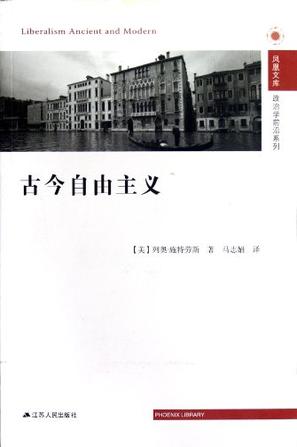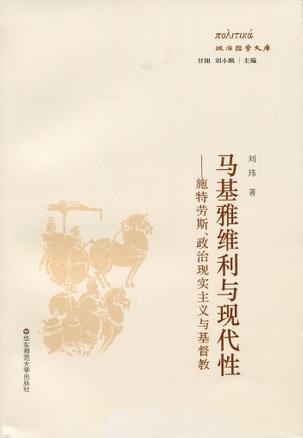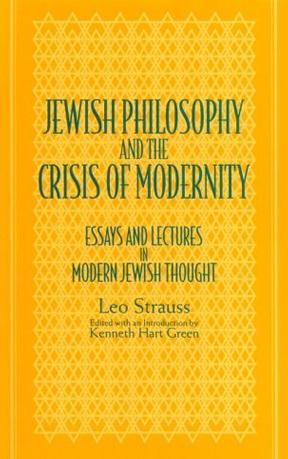欢迎来到相识电子书!
标签:施特劳斯
-
古典传统与自由教育
自由教育是从庸俗中解放出来。古希腊人关于“庸俗”有一个绝妙的词:他们称之为apeirokalia,形容缺乏对美好事物的经历。自由教育将赠予我们之于美好的事物的经历。 根据事物本身的状况,我们可以期望从正确理解的人性中比从科学中获得更为直接的帮助,从敏感和精致中比从几何学的精神中获得更为直接的帮助。如果我没弄错,这就是为何现在的身由教育几乎等同于阅读古希腊经典。 就像别人被一匹良马、一条好狗或一只灵鸟取悦那样,我自己则因好朋友们而获得更高的快乐……古代的贤人们通过将它们写进书中而遗留下来的财富,我与我的朋友们一起开启它并穿行其中,而且如果我们发现了什么好东西,我们就把它挑出来,并当作一次丰盛的收获,倘若我们因此而能相互促益的话。 人不得不在二者之间选择,要么选择令人愉悦的谬见带来的心灵平静,要么选择令人烦恼的真理带来的心灵平静。哲学总在盼着世界的围墙倒塌,它突破了世界的围墙,放弃了对世界的眷恋(attachment the world),这种放弃最令人痛苦。另一方面,诗歌如同宗教,深深扎根于对世界的眷恋,但同时,诗歌有别于宗教,因为,诗歌可以被用来服侍超脱(detachment)。由于诗歌根植于未有哲学之前的超脱,由于诗歌强化和深化了对世界的眷恋,哲学化的诗人既是恋世的,又是超脱的,是这两者之间完美的斡旋者。 -
苏格拉底与阿里斯托芬
本书是列奥 施特劳斯的晚期作品,通过对苏格拉底与阿里斯托芬这两位思想史人物的碰撞来理解“诗与哲学之争”这一古老问题,并重新提起古典政治哲学这一伟大传统。本书分为两个部分:第一部分解读《云》,第二部分解读所有的阿里斯托芬的谐剧。施特劳斯 -
Xenophon's Socrates
Relying exclusively on the texts, Professor Strauss analyzes and compares every seemingly casual utterance as well as the more formal statements to recover the true Socrates and to determine the character of political philosophy. He investigates its origins, possibilities, and intention against the nonphilosophical background from which it emerged. -
Studies in Platonic Political Philosophy
One of the outstanding thinkers of our time offers in this book his final words to posterity. Studies in Platonic Political Philosophy was well underway at the time of Leo Strauss's death in 1973. Having chosen the title for the book, he selected the most important writings of his later years and arranged them to clarify the issues in political philosophy that occupied his attention throughout his life. As his choice of title indicates, the heart of Strauss's work is Platonism--a Platonism that is altogether unorthodox and highly controversial. These essays consider, among others, Heidegger, Husserl, Nietzsche, Marx, Moses Maimonides, Machiavelli, and of course Plato himself to test the Platonic understanding of the conflict between philosophy and political society. Strauss argues that an awesome spritual impoverishment has engulfed modernity because of our dimming awareness of that conflict. Thomas Pangle's Introduction places the work within the context of the entire Straussian corpus and focuses especially on Strauss's late Socratic writings as a key to his mature thought. For those already familiar with Strauss, Pangle's essay will provoke thought and debate; for beginning readers of Strauss, it provides a fine introduction. A complete bibliography of Strauss's writings if included. -
Socrates and Aristophanes
In one of his last books, Socrates and Aristophanes, Leo Strauss's examines the confrontation between Socrates and Aristophanes in Aristophanes' comedies. Looking at eleven plays, Strauss shows that this confrontation is essentially one between poetry and philosophy, and that poetry emerges as an autonomous wisdom capable of rivaling philosophy. Summary: How the other half lives This book follows the typical Strauss pattern: In the first few pages he makes a blanket statement (in this case, Aristophanes is a reactionary; in Thoughts on Machiavelli it was, Machiavelli is evil), then follows it up will a torturous and nuanced analysis of the thinker's ideas until you begin to wonder: In what way is Aristophanes a reactionary or Machiavelli, evil. He tells you the picture is black and white, then he brings you in so close that it all turns gray. Be this as it may, Plato's Symposium and Republic (especially Republic X where Socrates bans the poets from his just city) tells only half the story (philosophy's side). In this book Strauss tells the other half (poetry's side). In essence, Symposium and Republic (and to a certain extent, Phaedo) make up Plato's case as to why philosophy should be the teacher of public morality instead of poetry. Strauss' book takes Aristophanes' eleven existing plays and presents his opposing arguments, his defence of poetry and attack on philosophy. Interesting read for we who sit the other side of Plato's Republic (i.e. Medieval Christendom, where there is no longer any contest between Thomas Aquinas and Dante Aligheri). Summary: The madness of war While the introduction, conclusion and first essay (on "Clouds") is apparently anchored in an argument between philosophy and poetry, the further Strauss leaves "Clouds" behind, the more we see through his close reading of the plays, in a way we never do from the younger Plato, the cultural disintegration of Athens under the assault of the war. Euripides, not Socrates, emerges at the real opponent and comedy triumphs over both tragedy and philosophy as the best teacher. This brings us close to an historical experience so often lost in classical studies, particularly in political philosphy, the madness in the streets of Athens and the fully-formed, transcendent characters which emerge with the comic treatment. These are not the spoiled aristocratic youth clustered around Socrates or the sophists (Plato's real enemies - not the poets). These are the men and women at the corner bar. This book makes you wish Strauss had done a "Hobbes and Shakespeare." His evident enjoyment of his subject leaks through with increasing intensity the further he seems to drift from his dichotomy. Could it be Strauss wished to remind his followers, ever so gently, to, like, lighten up and read a good comedy, even in the Greek some labor so hard to acquire? The book at least raises two questions: how did the bold Aristophanes avoid capital punishment? why did the ironic, diplomatic Socrates accept his? Summary: insightful...helpful I had to write a term paper for my critical thinking class in college, and it was on Aristophanes. The topic, more specifically, explored how Socrates' fate would have been different, had Aristophanes not written the play "The Clouds." This book was helpful in explaining the play, Aristophanes, and his relationship with Socrates. If you're studying anyhting of this nature, or are just interested in the two men mentioned in the title, I strongly recommend that you read it. -
On Tyranny
On Tyranny is Leo Strauss's classic reading of Xenophon's dialogue, Hiero or Tyrannicus, in which the tyrant Hiero and the poet Simonides discuss the advantages and disadvantages of exercising tyranny. This edition includes a translation of the dialogue, a critique of the commentary by the French philosopher Alexandre Kojève, Strauss's restatement of his position in light of Kojève's comments, and finally, the complete Strauss-Kojève correspondence. -
Natural Right and History
The problem of natural right is one of the most controversial and important issues in contemporary political and social philosophy. In this classical work, Leo Strauss examines the status of the issue in contemporary thought and argues that there is a firm foundation in reality for the distinction between right and wrong in ethics and politics. On the centenary of Strauss's birth and the fiftieth anniversary of the Charles R. Walgreen Lectures at the University of Chicago, where Strauss first presented the work, the book remains as controversial and essential as ever. -
施特劳斯的路标
本书收入学者刘小枫学习施特劳斯学述的五篇心得,写于1999至2009年间。作者说:施特劳斯与价值相对主义和虚无主义的不懈斗争,其实就是《拯救与消遥》的立场。还说:对于我自己来说,本书告别的绝非仅仅是1999,而是1919以来的文化精神,甚至1781以来的哲学精神。本书之重要性由此可见。本书是刘小枫系列著作集最新的一种。 -
苏格拉底问题与现代性
施特劳斯接手审理尼采对苏格拉底提出的指控,并得出与尼采相反的结论:西方现代性恰恰是由于西方哲人不再理会或不再能理解苏格拉底问题的结果——从现代性问题出发,尼采提出了“苏格拉底问题”;同样从现代性问题出发,施特劳斯却通过重审“苏格拉底问题”看清了现代性问题的深远本相,并由此找到了超克现代性方案的方案。 我们没有充分地阐释古典哲学,这归因于我们欠缺这么做的哲学动力。几代人过后,我们如今认识到有必要对现代原则进行一次自由的重审,而这场重审必定暗含着对古典哲学的充分理解,这一认识第一次弥补了这一欠缺。 编者说明 我们时代的危机(李永晶 译) 政治哲学的危机(李永晶 译) 现代性的三次浪潮(丁耘 译) 马基雅维里与古典文学(彭磊 译) 《霍布斯的政治学》德文版前言(娄林 译) 论卢梭的意图(冯克利 译) 德意志虚无主义(丁耘 译) 评柯林武德的历史哲学(余慧元 译) 注意一种被遗忘的写作艺术(林志猛 译) 斯巴达与色诺芬的品味(陈戎女 译) 论柏拉图政治哲学新说之一种(彭磊 译) 评色诺芬的《希腊志》研究(高诺英 译) 苏格拉底与政治学问的起源(肖涧 译) 剖白(何子建 译) -
霍布斯的政治哲学
简介: 对霍布斯的政治哲学的经典研究。霍布斯的政治哲学并不出自对自然科学的接受,而是出自对人性与道德的体验与理解;霍布斯开创了近代政治哲学,为其奠定了基础。霍布斯的政治哲学也是对近代西方文明的独特假设的清晰表达。 前 言 本书旨在对霍布斯的政治哲学及其后继学说的原则作出分析。这些原则之所以需要一个新的分析,是因为在过去的几十年里,我们对政治思想的传统,认识得更深刻了。以前,人们可以不加论证就有把握地认为,十七世纪和十八世纪是自然法理论的全盛时期;现在,这个情况已经一去不返了。那种看法理所当然地基于一个比较,即在理性主义时代的政治理论跟十九世纪的政治理论之间进行比较。在这一比较的范围之内,它仍然是对的;但是,当我们把中世纪传统和古典传统充分地考虑在内时,它就站不住脚了。这一转向,对我们阐释霍布斯的政治哲学,其作用显而易见。约翰·莱尔德关于霍布斯的近著已经可以试图论证,在伦理理论和政治理论领域,霍布斯的“声音和双手都是中世纪的”。尽管这个主张很难成立,但是它清楚地证明,以往那种断言霍布斯的首创性毋庸置疑的观点,现在或多或少已经动摇,需要进一步论证;而这种观点在过去是不言而喻的。总的来说,如果自然法诸理论远非理性主义时代所特具,如果它们在中世纪传统和古典传统中就已经几乎是司空见惯的,那么,我们不可避免地要问,何以惟独十七世纪和十八世纪,获得了自然法理论杰出时代的声誉。可能有人会说,由于广为人知的政治原因,自然法理论对那个时期的实际意义,大于任何其他时代。为了事先排除这种论据不足的答案起见,我们必须提出一个更恰当的问题,这就是:在近代的自然法观点和传统的自然法观点之间,是否没有原则区别。事实上,原则区别确实存在。传统的自然法,首先和主要地是一种客观的“法则和尺度”,一种先于人类意志并独立于人类意志的、有约束力的秩序。而近代自然法,则首先和主要是一系列的“权利”,或倾向于是一系列的“权利”,一系列的主观诉求,它们启始于人类意志。在本书中,我已经试图把作为近代政治哲学创始者的霍布斯政治学说,跟作为传统政治哲学奠基者的柏拉图和亚里士多德政治学说加以比较,以期论证这一观点。如果我们把洛克、孟德斯鸠和卢梭的学说跟譬如胡克、苏亚雷斯和格劳秀斯的学说进行比较,我们就会得到本质上同样的结果。甚至莱布尼茨的学说,虽然在表面上似乎是上述规律的最重要的例外,但其实也会证实这个规律,只要我们不但考虑到他所归结于自然法命题的内容,而且考虑到其形式——即有条件的性质。(霍布斯在莱布尼茨之前就持这一看法。由于莱布尼茨的这个看法,康德的区别于假言命令的绝对命令原则,就成为必要的了。毫无疑问,传统的自然法法则,曾经是绝对命令,或曾经被理解为绝对命令。)然而,尽管霍布斯远不如自然法的多数鼓吹者那样重视“人的权利”的实际意义,他的学说却比任何人的学说都更清晰地体现了近代自然法的精髓及其所有的本质涵义。这是因为,霍布斯显然不像传统学说那样,从自然“法则”出发,即从某种客观秩序出发,辐是从自然“权利”出发,即从某种绝对无可非议的主观诉求出发;这种主观诉求完全不依赖于任何先在的法律、秩序或义务,相反,它本身就是全部的法律、秩序或义务的起源。霍布斯的政治哲学(包括他的道德哲学),就是通过这个作为道德原则和政治原则的“权利”观念,而最明确无误地显示它的首创性的。因为,通过从“权利”出发,从而否定了“法则”的首要地位(根本上也就是“德行”的首要地位),霍布斯开创了一个针对理想主义传统的立场。另一方面,通过把道德和政治奠定在“权利”的基础上,而不是奠定在纯粹的自然倾向和自然欲望的基础上,霍布斯又开创了一个针对自然主义的立场。这就是说,“权利”的原则介乎于两者之间,一方面,是严格意义上的道德原则(如传统自然法的那些道德原则),另一方面,是纯粹的自然原则(如快乐、欲望甚或功利)。我们可以说,“权利”是一个司法专用概念。关于在哲学上运用这个概念的一些先决假设,将在本书的最后一章中谈及。这一哲学运用的涵义,我们不得不放到那里再作充分分析;因为在分析之前,需要首先排除障碍,此种障碍妨害我们仅仅是去承认一个显而易见的事实,那就是,霍布斯的政治哲学从自然“权利”出发,而既不是从自然“法则”出发,也不是从自然倾向或自然欲望出发。 这些障碍之所以存在,是由于霍布斯试图把他的政治哲学放在近代自然科学的基础上。这样做的诱惑,确实难以抵御。在一定的程度上,传统的道德哲学和政治哲学的基础是传统的形而上学,而当传统的形而上学被现代自然科学所取代时,就似乎有必要把新的道德哲学和政治哲学放到新的科学的基础上了。这种企图永远也不会成功:用霍布斯的后继者的语言来说,传统形而上学是“拟人的(anthropomorphistic)”,所以可以成为一种关于人的哲学的恰当的基础;而另一方面,近代科学试图放弃所有的“拟人方法”,脱离所有关于目的和完美的观念,以此来阐释自然,所以,它对于理解涉及人的事物,对于奠定道德和政治的根基,往少处说也是毫无裨益的。就霍布斯而言,企图把政治哲学放在近代科学的基础上,后果是无法始终连贯一致地坚持自然“权利”与自然欲望之间的根本区别。所以,要想充分认识霍布斯“权利”原则的意义,首先必须揭示,他的政治哲学的真正基础,不是近代科学。论证这一点,正是本书的特定目的。 正如乔治·克鲁姆·罗伯逊五十年前在他的著作《霍布斯》中所指出的,“早在他还只是人和人类生活方式的一个观察者,而尚未成为一位机械论哲学家的时候,(霍布斯的)全部政治学说无疑就已经基本成形了”(第57页)。所以,我们自然而然地应该尝试,对霍布斯关于“人和人类生活方式”的“前科学”思想,对他关于人类生活的最早的、尚未为所谓科学“解释”所曲解的看法,作出连贯一致的阐述。我希望本书证明,如果我们企望对霍布斯的思想有任何条理清楚的理解,那么,这个阐述就是可能的,甚至是必要的。这样一种理解,并不像表面上看起来那样容易取得。固然,霍布斯的每一个读者,都被他思想的清晰、严密和坚定所打动。但是,霍布斯的每一个研究者,也都为他的著述中比比皆是的矛盾之处而震惊。他的最重要、最独特的论断,大都自相矛盾,或者因在他的著作中某些地方否认了其明显涵义而产生矛盾;只有散见于他的著作中的很少几个论断不是这样。为了发现哪些矛盾论断表达他的真实观点,我们不得不紧紧抓住我们对他思想的严密和连贯一致的最初印象。因为那个印象不是别的,就是我们对霍布斯关于人类生活的根本见解的洞察,这个见解不是矛盾的,而是连贯一致的和不可分割的。正是这个人生观,而不是近代科学,才是他的政治哲学的真正基础。这种人生观的由来,与其说是任何学术或科学上的专注,不如说是对于日常生活和“公共社交”中人的行为举止的切实体验。而这个体验,作为霍布斯人生观的基础,其踪迹必须追溯到一种特定的道德态度,这个道德态度迫使持有这种道德态度的人,以霍布斯的独特方式,去体验和观察人类。惟其如此,这种对人类生活的见解,就不会表现在某个哲学体系里,而会在语言和思考方面,充分地表现在诸如霍布斯的同时代人拉罗什富科所使用的那种文风语调之中(附带说说,拉罗什富科对于“自爱”的重要性的看法,跟霍布斯关于“荣誉”或“自尊”的重要性的论点,如出一辙)。在霍布斯的著作里,有一些重要部分,就是用这样的语言写成的。然而,霍布斯的意图,不是仅仅为了抒发他个人的体验而阐述他的人生观,而首先是要为这种人生观提供论据,从而证明这是对人类生活惟一正确和普遍适用的看法。从这一意图着手,我们就能把握他的著述中含有那些矛盾之处的终极原因。因为,他没有现成的方法可供使用,以便适应阐发他的人生见解的要求,于是他别无选择,只能或者从哲学传统那里,或者从近代科学那里,去借用方法和概念。可是,无论是哲学传统,还是近代科学,都无法跟那些要求相对应。传统概念,不适合一个根本上非传统的看法;近代科学概念,跟一个发源于某种道德态度的人生见解难以相容。一方面,是霍布斯对人类生活最早的看法,另一方面,是传统或近代科学所提供的观念,这二者之间根本上的圆凿方枘,可以解释发生在他的著作中的全部矛盾,无论其涵义和后果是多么重要。确认这个事实,不但对于赋予霍布斯政治哲学以任何自圆其说的诠释,而且,如我所已经说明的,甚至对于认识这个哲学的原则,都是必不可少的条件。 为了认识到霍布斯对于人类生活最早的见解,既独立于传统,又独立于近代科学,我们必须研究他的道德思想和政治思想的起源。因为,研究霍布斯的早期思想,可以使我们看到,他最早的人生概念,早在熟悉近代科学之前,就已经在他的头脑里形成了,这样我们就能确认一个事实,即那个概念独立于近代科学;而且,研究他后来的思想发展,可以使我们进一步证实这项发现,因为我们事实上将会见到,他最早的人生观,在跟近代科学的要求发生冲突。另一方面,把霍布斯的思想发展作为一个整体来研究,即作为从传统中逐步解放出来的过程来研究,会使我们明白,他越是摆脱传统的桎梏,至少就越清楚地意识到,他早期人生见解的先决假设和涵义、后果都是什么;这样我们就可以证明,如果充分理解其意义的话,他的早期观念,就不但是独立于传统的,而且甚至是反传统的。现在,我们既从近代科学的影响(大体上)日益增大的角度,又从传统的力量(大体上)日益减弱的角度,去研究他的思想发展,而我们的出发点,是同一个原因,就是对于霍布斯的早期人生观感到兴趣。然而,我们从这两个角度入手,所运用的方法,却是不一样的。在第一种情况下,我们的兴趣特别集中在霍布斯的早期思想上,集中在他研究精确科学之前所持的观点上。在第二种情况下,我们特别想要看到他趋向摆脱传统的具体过程,这个趋向在霍布斯的后期,显露得最为清楚。不过,把这两条研究思路截然分开,是不可能的。由于霍布斯的早期著作很稀少,而他的后期思想则发挥得非常充分,所以我们在有些情况下,不得不对霍布斯后期思想发展的出发点加以推测,以此来阐释重建他的早期观点,从而弥补材料的不足。这一点必须强调,因为两条研究思路互相依赖,否则本书的写作构想就难以成立了。 在霍布斯那里,“早期著作”这个措辞的涵义有些独特。如果我们把它理解为霍布斯第一部系统的政治哲学著作(《法律、自然和政治的原理》,1640年完成)之前的所有著述的话,它们就包括他五十岁以前的全部写作。在这个意义上,“早期著作”计有:(1)他为其译著修昔底德的《伯罗奔尼撒战争史》写的引言(不晚于1628年);(2)诗作《峰峦观止》(约1627年);(3)由特尼厄斯发现编辑并命名为《第一原理简述》的那篇短文(1630年左右);(4)为亚里士多德《修辞学》所作的两篇英文汇纂(约1635年)。上述第二和第三两部作品,与我们的目的关系不大。另一方面,我们还需要放入霍布斯早期的自传和传记记述,以及他的一些来往书信。这些极为稀少的材料,不足使我们赖以对霍布斯早期思想的所有方面,作出一个确切的答案。有一部查茨沃思手稿,尽管不属霍布斯文献,但据我判断,确实出自霍布斯之手,假使它可以被用作研究霍布斯早期思想的一个来源,那么情况就不同了。有理由推测,即便这部手稿不是霍布斯本人最早的著述,他对该稿的写作,也具有决定性的影响。(这部手稿题为《文集》,为威廉·卡文迪什所著,作为“今天的礼物”献给他的父亲。如S.C.罗伯茨先生向我指出的,《文集》其实是一六二○年匿名发表的《荏苒悠暇》(HoraeSubseciuae)的较早和简短得多的原稿。鉴于《文集》和《荏苒悠暇》都以培根一六一二年以后发表的一些散文为基础,它们就一定都是在一六一二年和一六二○年之间写成的。历史上,《荏苒悠暇》据认为是“钱多斯(Chandos)勋爵”或者“坎迪什(Candish)勋爵,即后来的德文郡伯爵”写的。从威廉·卡文迪什签署的手稿发现以后,后者就被证实了,前者则很可能是由于把“Candish”错读成“Chandos”了。当然,威廉·卡文迪什可能是任何一位德文郡伯爵,因为这些伯爵的名字都是威廉;但是这些可能性,有的却被《文集》和《荏苒悠暇》的写作时间(1612年和1620年之间)排除了,只有德文郡伯爵一世和他的儿子,后来的德文郡伯爵二世,能够是这些作品的著作者。伯爵一世的著作权也要排除,因为《文集》是威廉·卡文迪什献给他当时还活着的父亲的,而伯爵一世的父亲已于一五五七年去世。这样看来,《文集》的作者,很可能还有《荏苒悠暇》(名义上或事实上)的作者,不可能是别人,只能是威廉·卡文迪什,也就是后来的德文郡伯爵二世。而这位威廉·卡文迪什,恰好是霍布斯的学生和朋友。从一六○八年到一六二八年,霍布斯作为私人教师和秘书跟他住在一起,所以在年代上,正好覆盖《文集》和《荏苒悠暇》可能写作的整个时期。当时,培根同后来的伯爵二世威廉·卡文迪什,以及培根同霍布斯,都有私人往还;这些私人关系有助于解释存在于培根的《论说文集》与卡文迪什的《文集》之间的文学渊源。尽管卡文迪什的《文集》从培根的《论说文集》那里得到很大的借鉴,然而,借鉴者跟被借鉴者之间的歧见,却绝不是无足轻重的——而这些歧见,恰恰反映了培根的思想跟霍布斯的思想之间的不同。) 除非临时另予注明,我主要使用莫莱斯沃思版的霍布斯著作(引用时称《英文全集》或《拉丁文全集》)。《法律、自然和政治的原理》和《比希莫特》,我用特尼厄斯版;《利维坦》用A.D.林赛的版本。 承蒙德文郡公爵大人慷慨地允许我在查茨沃思审阅霍布斯文献并引用其中一些段落,谨此极表谢忱。我也万分感激查茨沃思图书馆的弗朗西斯·汤普森先生,他在我研究霍布斯文献的时候所给予的帮助和忠告,其价值无法估量。 欧内斯特·巴克教授阅读了本书的手稿,并提出了非常有益的建议。我得以完成这项工作,首先归功于他的仁慈和兴趣。我必须向他深致谢意。 我还要感谢牛津巴利奥尔学院院长R.H.托尼教授、N.F.霍尔教授和E.J.帕森特先生给予我的帮助和鼓励。 洛克菲勒基金会、学术援助理事会和西德尼·苏塞克斯学院董事会的资助,使我深受其惠。 最后,E.M.辛克莱夫人欣然承担了翻译本书的艰巨工作,我谨向她深致谢忱。 L.S. 美 洲 版 前 言 由于各种原因,本书现在依照原稿再版。它无疑需要作很多修改。但是我仍然觉得,我对霍布斯的处理方式,比现有的其他处理方式更为可取。我曾经认为,霍布斯是近代政治哲学的创始人。这是一个错误:这个殊荣,应该归于马基雅维利,而不是霍布斯。然而,我还是宁愿保留这个容易纠正的错误,或者说宁愿保留这个错误的特定前提,而不愿认可那些更为人们所普遍接受的观点。我曾不得不反对那些观点,它们比较不容易纠正。 我曾经已经意识到,近代思想对于自己是否从前近代思想那里取得了决定性的进步,已经失去了自信心,或者说已经没有了把握;我还看到,它当时正在转向虚无主义,或实际上大同小异地说,正在转向狂热蒙昧主义。我得出结论,近代人与古人孰优一案,必须摒弃习见,心平气和而又认真热忱地重新考察。换句话说,我的结论是,我们必须学会严肃认真地,也就是超然公正地,考虑这样一个可能性,那就是,当斯威夫特把近代世界比作小人国,把古代世界比作巨人国时,他其实是对的。我假定,政治哲学,作为对根本政治问题的终极真理的追求,是可能的和必需的:我把霍布斯看成一位政治哲学家,而不是一个空想者或神话编写者。我设想,作为一种本质上非历史的追求,政治哲学今天需要对于它的历史进行批判性的研究;这样一种批判性的历史研究假设,过去的伟大思想家们怎么理解他们自己,我们今天就会怎么去理解他们;政治哲学的历史,要求我们恰如其分地划分历史时期;这种对历史时期的划分,要跟主角,即那些伟大的政治哲学家的自觉意识相一致,只有在这种情况下,它才可以被认为是恰如其分的。我之所以断言霍布斯是近代政治哲学的创始人,是由于他本人曾经表示确信,他作为一个政治哲学家,已经跟过去的全部政治哲学,实现了根本的决裂,其程度之彻底,远远超过了季蒂昂的芝诺、帕多瓦的马西利乌斯、马基雅维利、博丹甚至培根所作的决裂。我的这个看法,从培尔、卢梭等权威判断那里,得到过证实。 我犯这个错误,其直接并可能是充足的原因,在于我对于马基雅维利《论提图斯·李维的前十书》的开场宣示思考不充分。我曾经从斯宾诺莎那里学到,要重视《君主论》第十五章那响亮清晰的号角声。可是,我也被所有的权威来源告知,马基雅维利的巨制,不是《君主论》,而是《论提图斯·李维的前十书》;而《论提图斯·李维的前十书》,表面看上去,是在试图追寻已经湮没或已经被遗忘的逝者,而不是开拓一个全新的前景。我没有考虑到,马基雅维利可能还在实行某种谨慎和克制,而霍布斯则已经不屑于这样做了:马基雅维利和霍布斯对于首创权的索求,其振聋发聩之程度不同,这不是由于思想清晰程度不一样,而只是由于直言不讳的程度不同。我之所以没有考虑到这一点,原因是我没有充分注意到一个问题:智慧能不能脱离温和与节制;或者说,我没有对于我们所必须作出的牺牲给予足够的注意;作出这些牺牲,我们的思想就可以获得自由。 L.S. 译 后 记 列奥·施特劳斯(1899—1973)是二十世纪最有影响、同时又最引起争议的政治哲学学者之一。他著述诠释很多,今天在西方政治理论领域,仍然占有不容忽视的地位。《霍布斯的政治哲学》属于施特劳斯早期著作,是为已经熟悉霍布斯原著的读者写的。全书的论证,严密紧凑,涵蓄复杂,同时又有瑕疵,甚至不免牵强之处。以赛亚·伯林认为,《霍布斯的政治哲学》是施特劳斯写得最好的一本书。然而据伯林回忆,施特劳斯生前曾经对他表示,这本书在他的著作中,是“最不优秀的一本”。施特劳斯在他后来为该书写的那篇引人注意的“美洲版前言”里,坦率地批评了自己的这部著作。而另一方面,柏林自己也是二十世纪一位重要的思想家,对他的意见,我们不能不重视。那么,他们两个人究竟为什么对这本书持有如此不同的看法,这本身就会是一个有意思的问题。 本书英译本,由埃尔莎·M.辛克莱译自施特劳斯的德文手稿,于一九三六年首次出版。中译本根据芝加哥大学出版社一九八四年英文版译出。注释中的版本、年代、页码等,与英文版同。书中摘自《利维坦》的引文,借自黎思复、黎廷弼的中文译本(杨昌裕校,商务印书馆1996年版);其他英文引文,悉由译者自译。大量拉丁文引文,以及少许希腊文,法文和德文引文,俱参照原著英译本译出。有几段拉丁文引文,无英译,由CharlesThompson Smith先生和年轻的朋友David Goldstein代为译成英文。译者谨向他们致以谢忱。原作中拉丁文、希腊文等文句译文以分别标明。 中译本错误肯定很多,概由译者负责,并希望读者指正。 -
Leo Strauss and His Legacy
With over 10,000 entries, this bibliography is the most comprehensive guide to published writing in the tradition of Leo Strauss, who lived from 1899 to 1973 and was one of the most influential political philosophers of the twentieth century. John A. Murley provides Strauss's own complete bibliography and identifies the work of hundreds of Strauss's students, and their students' students. Leo Strauss and His Legacy charts the path of influence of a beloved teacher and mentor, a deep and lasting heritage that permeates the classrooms of the twenty-first century. Each new generation of students of political philosophy will find this bibliography an indispensable resource. -
Leo Strauss and the Problem of Political Philosophy
Leo Strauss and his alleged political influence regarding the Iraq War have in recent years been the subject of significant media attention, including stories in the Wall Street Journal and New York Times.Time magazine even called him “one of the most influential men in American politics.” With The Truth about Leo Strauss, Michael and Catherine Zuckert challenged the many claims and speculations about this notoriously complex thinker. Now, with Leo Strauss and the Problem of Political Philosophy, they turn their attention to a searching and more comprehensive interpretation of Strauss’s thought as a whole, using the many manifestations of the “problem of political philosophy” as their touchstone. For Strauss, political philosophy presented a “problem” to which there have been a variety of solutions proposed over the course of Western history. Strauss’s work, they show, revolved around recovering—and restoring—political philosophy to its original Socratic form. Since positivism and historicism represented two intellectual currents that undermined the possibility of a Socratic political philosophy, the first part of the book is devoted to Strauss’s critique of these two positions. Then, the authors explore Strauss’s interpretation of the history of philosophy and both ancient and modern canonical political philosophers, including Plato, Aristotle, Machiavelli, and Locke. Strauss’s often-unconventional readings of these philosophers, they argue, pointed to solutions to the problem of political philosophy. Finally, the authors examine Strauss’s thought in the context of the twentieth century, when his chief interlocutors were Schmitt, Husserl, Heidegger, and Nietzsche. The most penetrating and capacious treatment of the political philosophy of this complex and often misunderstood thinker, from his early years to his last works, Leo Strauss and the Problem of Political Philosophy reveals Strauss’s writings as an attempt to show that the distinctive characteristics of ancient and modern thought derive from different modes of solving the problem of political philosophy and reveal why he considered the ancient solution both philosophically and politically superior. -
施特劳斯与流亡政治学
《施特劳斯与流亡政治学(施特劳斯集)》以时间为经、问题为纬,借助详实缜密的历史分析和文献梳理,展现了青年施特劳斯思想发展的生动画面,为读者勾画了一幅政治哲人蜿蜒求索的思想地图。无论从思想分期、原初意图,还是理论旨趣方面,要想对施特劳斯思想获得一种恰切的理解和把握,就要对他的流亡处境、生活经历有所了解,在生活与思想的关联中勾勒这位政治哲人的思想肖像。 -
论施特劳斯
施特劳斯是谁?他究竟有怎样的魅力和能力,得以在社会科学研究的洪流中,坚持古典德行的超越?近年以来,随着中国施特劳斯热的兴起,关于其人其书其脉络渊源的研究也层出不穷,不过转渡的、引介的多,原创的少,学样的多,究竟于中国背景和中国问题的少,少之又少。 本书为中国汉语学界原创的,以中国背景和中国问题为导向的施特劳斯思想研究作品。篇幅不长,然而问题精到,阐述清晰,颇能开宗明义,直探其核心要旨,并在此基础上,对施特劳斯思想在中国未来的进路与前景有深刻的反思。 作者陈建洪,南开大学哲学系主任,浸淫政治哲学与施特劳斯思想经年。本书的出版,必将推动中国政治哲学研究的深入,推动汉语学界积极转化施特劳斯的古典研究于中国意识、中国语境、中国问题之中。 -
Leo Strauss, Max Weber, and the Scientific Study of Politics
Can politics be studied scientifically, and if so, how? Assuming it is impossible to justify values by human reason alone, social science has come to consider an unreflective relativism the only viable basis, not only for its own operations, but for liberal societies more generally. Although the experience of the sixties has made social scientists more sensitive to the importance of values, it has not led to a fundamental reexamination of value relativism, which remains the basis of contemporary social science. Almost three decades after Leo Strauss's death, Nasser Behnegar offers the first sustained exposition of what Strauss was best known for: his radical critique of contemporary social science, and particularly of political science. Behnegar's impressive book argues that Strauss was not against the scientific study of politics, but he did reject the idea that it could be built upon political science's unexamined assumption of the distinction between facts and values. Max Weber was, for Strauss, the most profound exponent of values relativism in social science, and Behnegar's explication artfully illuminates Strauss's critique of Weber's belief in the ultimate insolubility of all value conflicts. Strauss's polemic against contemporary political science was meant to make clear the contradiction between its claim of value-free premises and its commitment to democratic principles. As Behnegar ultimately shows, values--the ethical component lacking in a contemporary social science--are essential to Strauss's project of constructing a genuinely scientific study of politics. -
The Cambridge Companion to Leo Strauss
Leo Strauss was a central figure in the 20th century renaissance of political philosophy. The essays of The Cambridge Companion to Leo Strauss provide a comprehensive and non-partisan survey of the major themes and problems that constituted Strauss’s work. These include his revival of the great ‘quarrel between the ancients and the moderns,’ his examination of tension between Jerusalem and Athens, and most controversially his recovery of the tradition of esoteric writing. The volume also examines Strauss’s complex relation to a range of contemporary political movements and thinkers, including Edmund Husserl, Martin Heidegger, Max Weber, Carl Schmitt, and Gershom Scholem, as well as the creation of a distinctive school of ‘Straussian’ political philosophy. -
古今自由主义
列奥·施特劳斯生前就备受推崇和攻击,他留下的丰富遗著继续引起讨论和争议。《古今自由主义》结集的文章涵盖了定义何为施特劳斯思想的重要主题:西方传统中理性与启示的张力,自由民主政治的哲学基础,特别是古代与现代两种自由主义相互冲突而又互补的关系。想了解这位煽动性的思想家,没有比读《古今自由主义》更合适的了。 -
马基雅维利与现代性
马基雅维利在他的两部最重要的著作之中都发出了惊人的宣告:在《君主论》中他公然宣称与之前的政治哲学传统决裂,而在《李维史论》中他则称自己发现了新方式和新秩序。马基雅维利或许有理由发出这样满怀自信的宣言,因为在批判基督教,宣扬世俗政治的意义上,他开启了政治哲学从古代转向近代的大幕,标志着一个世俗化时代的开端。马基雅维利这位基督顽固而狡诈的敌人,确实以其斗争的姿态预示了一个新时代的降临。 《马基雅维利与现代性——施特劳斯、政治现实主义与基督教》试图沿着施特劳斯开拓的马基雅维利解释道路继续前进。在总结施特劳斯对马基雅维利解释的贡献的基础上,作者刘玮力图修正施特劳斯所判定的马基雅维利对古典德性的背叛构成了其现代性的依据,认为马基雅维利其实继承了古典政治哲学中现实主义的一面,而他的现代性更多体现在向基督教吹响了人类精神的宏亮号角。 《马基雅维利与现代性——施特劳斯、政治现实主义与基督教》由华东师范大学出版社出版发行。 -
Jewish Philosophy and the Crisis of Modernity
Summary Explores the impact on Jews and Judaism of the crisis of modernity, analyzing modern Jewish dilemmas and providing a prescription for their resolution. This is the first book to bring together the major essays and lectures of Leo Strauss in the field of modern Jewish thought. It contains some of his most famous published writings, as well as significant writings which were previously unpublished. Spanning almost 30 years of continuously deepening reflection, the book presents the full range of Strauss's contributions as a modern Jewish thinker. These essays and lectures also offer Strauss's mature considerations of some of the great figures in modern Jewish thought, such as Baruch Spinoza, Hermann Cohen, Franz Rosenzweig, Martin Buber, Theodor Herzl, and Sigmund Freud. They also encompass his incisive analyses and original explorations of modern Judaism (which he viewed as caught in the grip of the "theological-political crisis"): from German Jewry, anti-semitism, and the Holocaust to Zionism and the State of Israel; from the question of assimilation to the meaning and value of Jewish history. In addition Strauss's two sustained interpretations of the Hebrew Bible are also reprinted. These essays and lectures cumulatively point toward the "postcritical" reconstruction of Judaism which Strauss envisioned, suggesting it rebuild along Maimonidean lines. Thus, the book lends credence to the view that Strauss was able to uncover and probe the crisis at the heart of modern Jewish thought and history, perhaps with greater profundity than any other contemporary Jewish thinker. Kenneth Hart Green is Assistant Professor in the Department for the Study of Religion at the University of Toronto. Table Of Contents Acknowledgments Editor's Preface Editor's Introduction: Leo Strauss as a Modern Jewish Thinker Part I: Essays in Modern Jewish Thought 1. Progress or Return? (1952) 2. Preface to Spinoza's Critique of Religion (1965) Part II: Studies of Modern Jewish Thinkers 3. How to Study Spinoza's Theologico-Political Treatise (1948) 4. Preface to Isaac Husik, Philosophical Essays (1952) 5. Introductory Essay to Hermann Cohen, Religion of Reason out of the Sources of Judaism (1972) Part III: Lectures on Contemporary Jewish Issues 6. Freud on Moses and Monotheism (1958) 7. Why We Remain Jews (1962) Part IV: Studies on the Hebrew Bible 8. On the Interpretation of Genesis (1957) 9. Jerusalem and Athens (1967) Part V: Comments on Jewish History 10. What Is Political Philosophy? [The First Paragraph] (1954) 11. Review of J. L. Talmon, The Nature of Jewish History (1957) 12. Letter to the Editor: The State of Israel (1957) Part VI: Miscellaneous Writings on Jews and Judaism 13. Introduction to Persecution and the Art of Writing (1952) 14. Perspectives on the Good Society (1963) Part VII: Autobiographical Reflections 15. An Unspoken Prologue (1959) 16. Preface to Hobbes Politische Wissenschaft (1965) 17. A Giving of Accounts (1970) Appendix 1: Plan of a Book Tentatively Entitled Philosophy and the Law: Historical Essays (1946) Appendix 2: Restatement on Xenophon's Hiero [The Last Paragraph] (1950) Appendix 3: Memorial Remarks for Jason Aronson (1961) Sources Bibliography Index
热门标签
下载排行榜
- 1 梦的解析:最佳译本
- 2 李鸿章全传
- 3 淡定的智慧
- 4 心理操控术
- 5 哈佛口才课
- 6 俗世奇人
- 7 日瓦戈医生
- 8 笑死你的逻辑学
- 9 历史老师没教过的历史
- 10 1分钟和陌生人成为朋友

